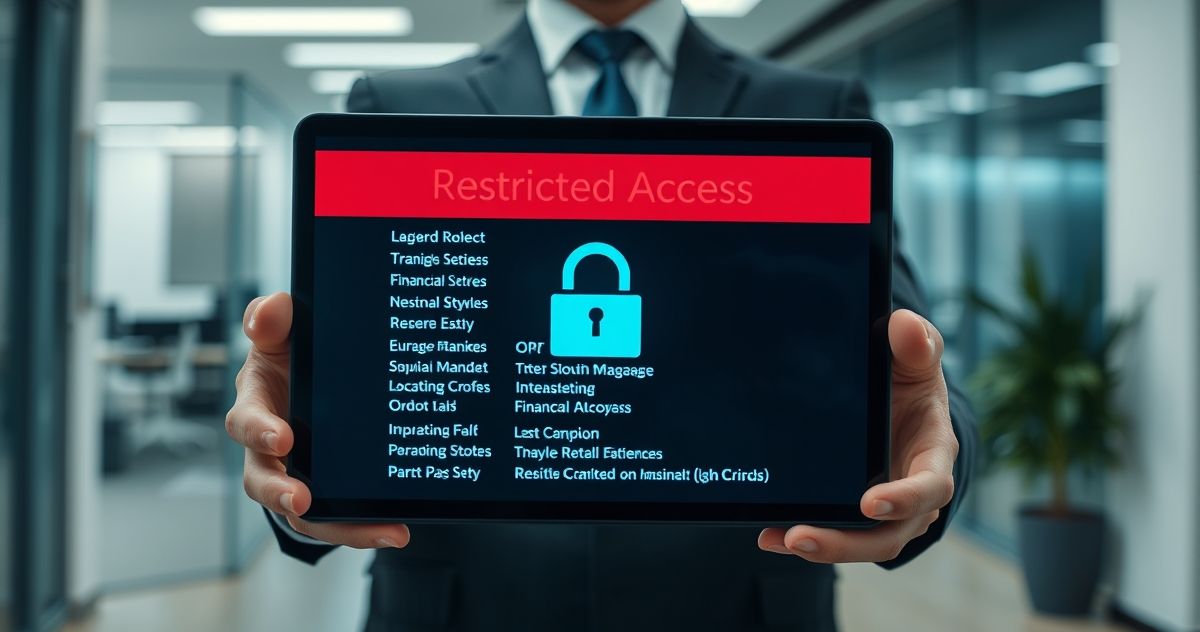The Freddie Mac Exclusionary List acts as a strict gatekeeper within the U.S. housing finance system. Comparable to a “no-fly list,” anyone on this list is banned from participating in any mortgage transaction that Freddie Mac buys or services. Freddie Mac, a government-sponsored enterprise, does not lend directly to homebuyers but buys loans from lenders, which helps keep mortgage credit flowing.
This list targets mortgage professionals and related parties who have engaged in fraudulent or unethical behaviors, such as submitting false documents, inflating property values, or consistently underwriting poor-quality loans. Being placed on this list is a serious consequence that effectively bars a professional or company from significant segments of the mortgage market.
Why Does the Exclusionary List Exist?
Freddie Mac takes on substantial financial risk by purchasing loans made by lenders. If those loans rely on fraud or misrepresentation, it can lead to large losses, ultimately affecting taxpayers, since Freddie Mac is government-backed. The Exclusionary List is a tool to minimize such risks by excluding parties known for misconduct.
Who Can Be on the List?
The list includes various mortgage market participants who have committed serious violations:
- Mortgage Lenders and Brokers: Those who knowingly submit fraudulent loan applications or consistently fail underwriting guidelines. Learn more about mortgage brokers here.
- Appraisers: Professionals who intentionally inflate home values to facilitate fraud. Explore appraiser roles here.
- Real Estate Agents: Agents who assist in falsifying buyer information.
- Attorneys and Closing Agents: Those who aid in document forgery.
- Builders and Developers: Parties involved in illegal schemes related to financing or kickbacks.
Consequences of Being Listed
Placement on the Exclusionary List drastically impacts careers:
- Prohibition from Freddie Mac Loans: Complete ban from involvement in any loan sold to Freddie Mac.
- Broader Industry Impact: Shared information with Fannie Mae and the Federal Housing Finance Agency means exclusion often extends across government-backed mortgage programs.
- Reputational Harm: Loss of trust makes it nearly impossible to find new clients or partners in the mortgage industry.
Common Violations Leading to Exclusion
| Violation Type | Explanation |
|---|---|
| Fraud for Profit | Conspiring to inflate property values or loan amounts to extract illicit gain. |
| Misrepresentation | Falsifying borrower income or employment to qualify for loans. |
| Defective Underwriting | Consistently approving loans that fail Freddie Mac’s quality standards. |
| Professional Misconduct | Allowing forged signatures or falsified documents during closing. |
FAQs
Is the List Public? No, it is confidential and only accessible to Freddie Mac and its business partners to prevent accidental dealings with excluded parties.
Can Someone Get Removed? Removal is possible but rare, requiring a thorough appeals process and demonstrated corrective actions.
Does It Affect Homebuyers? Not directly, but it helps protect buyers by promoting ethical practices among all parties involved in mortgage transactions.
According to Freddie Mac’s policies and the Federal Housing Finance Agency’s Suspended Counterparty Program, the Exclusionary List is crucial for upholding integrity in the mortgage lending industry and protecting taxpayer interests. For more about mortgage brokers’ roles, see Mortgage Broker, and for appraisal standards, visit Appraiser. For official details, refer to Freddie Mac’s exclusion policies and the FHFA Suspended Counterparty Program.

